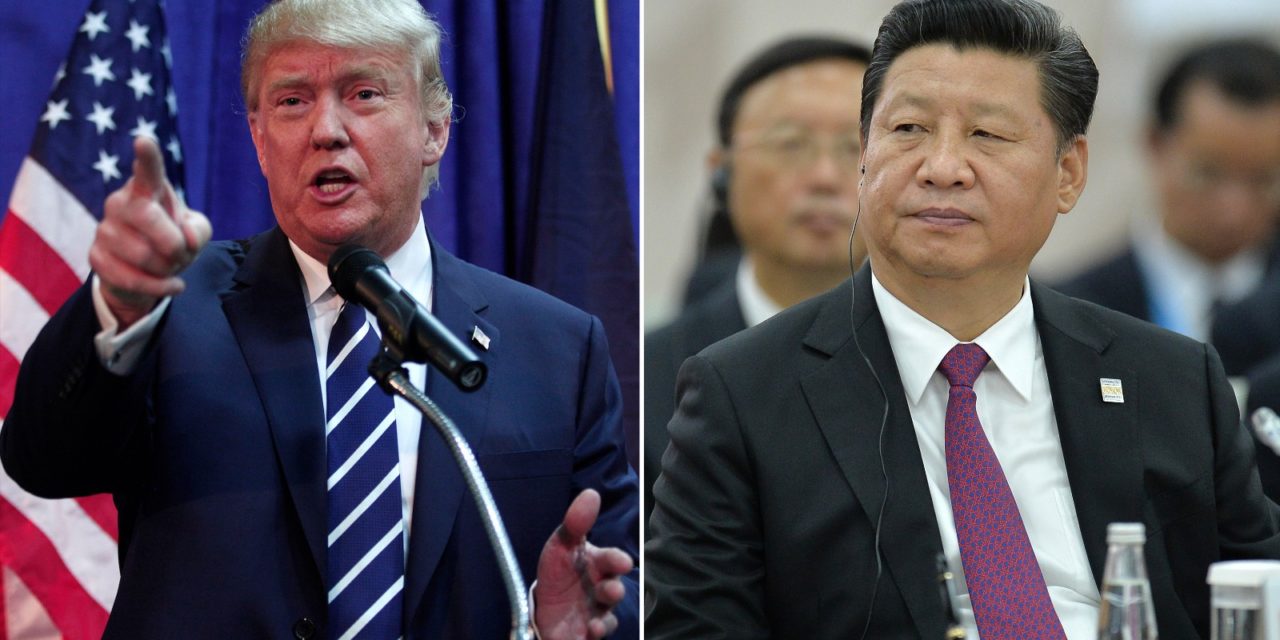As President Trump proceeds with an 11-day trip to China and four additional Asian countries, Tom Watkins is again sounding the alarm that the U.S. – and in particular Michigan – should jump on board the fast-moving train that is the Chinese economy.
Watkins, the former state schools superintendent for Michigan, has established a presence as a business consultant with an emphasis on U.S.-China commerce and trade. He has just returned from a lengthy trip to China – one of numerous travels he has made to the world’s most-populated nation since 1989 – and Watkins has a distinct message for federal and state officials:
We must “assure China’s rise does not come at our demise.”
China’s enhanced presence on the world stage, plus its ambitious plan to extend its economic reach throughout Asia and Africa, prompted the London-based Economist magazine to recently declare that President Xi Jinping has emerged as “the world’s most powerful leader.”
While Trump seems to have backed away from his 2016 campaign rhetoric foreboding a U.S trade war with China, Watkins praises another Republican leader, Michigan Gov. Rick Snyder, for recognizing that friendly relations with Chinese industrial leaders can pay dividends.
Michigan a leader in economic deals with Chinese
Between January 2010 and July 2017, Michigan received $1.1 billion in new business investment from China that created 5,475 jobs for Michigan residents. Michigan is China’s third-largest trading partner among the 50 states, with commercial transactions worth $12 billion a year.
In 2016, Michigan ranked second among the states for the number of economic investment projects by the Chinese, here in the Great Lakes State.
Watkins, who could be best described as a pragmatic Democrat, is not shy in ranking Snyder’s outreach to China far ahead of former Democratic Gov. Jennifer Granholm.
“Snyder understands that knowing, respecting, and appreciating the history, customs, and culture of China goes a long way in cementing relationships and bringing investment and jobs to Michigan,” said Watkins, who also served as the state mental health director.

Watkins
“The previous administration, for political purposes, played Peking Duck, never once in eight years in office traveling to the second largest economy in the world to develop government and business relationships to help tap into the 21st Century motherlode of economic activity.”
China’s economic transformation over the past 30 years, featuring an unprecedented middle class expansion, has focused on massive infrastructure projects: high-speed Bullit trains, modern airports, quality highways, and greatly enhanced e-commerce and technology systems. A communist nation that 25 years ago still banned private ownership of vehicles now represents the largest auto market in the world.
On his most recent trip to China, completed just a couple of weeks ago, Watkins visited 13 cities. These municipalities “make Detroit look like a small village,” he said. The economic activity in the megacities of Beijing (population 20 million) and Shanghai (more than 25 million) cannot be imagined by average Americans, Watkins warned.
Yet, Trump’s upcoming trip to Beijing will likely focus on the many issues dividing the two nations: free and fair trade, currency manipulation, cyberspying, theft of intellectual property, maintaining unfettered navigation in the South China Sea, human rights violations, North Korea’s aggressive nuclear policy, and Iran’s bid to dominate the Middle East.
U.S. being outsmarted by President Xi?
That’s a hefty agenda. At the same time, Xi’s successful efforts in recent weeks to consolidate power and put the Communist Party at the forefront of a new, nationalist tone cannot be ignored.
Yet, the president of the world’s largest authoritarian state carries a swagger when he travels abroad.
Here’s how The Atlantic magazine described the current political climate across the globe:
On his numerous foreign tours, Xi presents himself as an apostle of peace and friendship, a voice of reason in a confused and troubled world. Trump’s failings have made this much easier. At (the) Davos (summit) in January, Xi promised the global elite that he would be a champion of globalization, free trade and the Paris accord on climate change.
… Xi’s words are heeded partly because he has the world’s largest stockpile of foreign currency to back them up. …Hundreds of billions of dollars of Chinese money are to be invested abroad in railways, ports, power stations and other infrastructure that will help vast swaths of the world to prosper.
The alliances with overseas partners planned by China will greatly exceed the U.S. Marshall Plan that rebuilt Europe after World War II. And the Chinese, within a relatively tiny space in time, have already widely surpassed the United States as the world’s foremost trading partner. The U.S. intelligence community reports China serves as the largest import/export partner with 92 countries, far more than the United States, at 57 countries.
According to The Atlantic, perhaps the ultimate example of China’s shrewd global economic strategy is represented by the formerly downtrodden Pakistani port city of Gwadar, located on the Arabian Sea.
Thanks to Chinese investments in Gwadar’s natural resources, which will help fulfill the Asian giant’s vision of superhighways and other infrastructure across the continent, the city is booming with construction activity and the jobs that come with it.
Anja Mauel of the Atlantic reports that the ultimate Chinese/Pakistani goal is to transform Gwadar into another shimmering Middle East city like Dubai, perhaps serving as the home to 2 million people.
But there’s one huge catch to this arrangement.
Most of the funding for this makeover will come in the form of Chinese loans, not grants. If Pakistan can’t pay back those loans, China could own many of its coal mines, oil pipelines and power plants, which would grant them enormous leverage over the Pakistani government.
In any event, China has the rights to operate the Gwadar port for 40 years.
Photo: CNN screenshots











